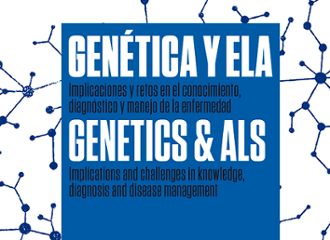Research projects
Start of main content
Study of the regulation of protein PSTPIP1 via tyrosine phosphorylation and its contribution to the aetiology of the PAPA autoinflammatory disease
15th National Programme for the allocation of Research Grants for Life and Matter Sciences
Rare diseases
Research Centre or Institution : Instituto de Biología y Genética Molecular. CSIC. Valladolid.
Abstract
PSTPIP1 is involved in activation of the inflammasome, which generates the active form of IL 1beta. The mutations A230T and E250Q in PSTPIP1 cause the autoinflammatory disease known as PAPA. These mutations affect a region of this protein that interacts with the PTPPEST tyrosine phosphatase, blocking its interaction, which leads to increased phosphorylation of PSTPIP1. At present it is unknown what role tyrosine phosphorylation plays in regulating PSTPIP1 and what importance it can have for the function of this protein in inflammatory response. It is also unknown which stimuli and signalling pathways are involved in the phosphorylation of PSTPIP1. This project proposes to study the physiological function of PSTPIP1 in the inflammatory response and determine the molecular mechanisms by which PSTPIP1 intervenes in the pathogenesis of PAPA autoinflammatory disease.
-
 Activities related
Activities related
-
 Projects related
Projects related
-
 News related
News related
-
 Publications related
Publications related
 Activities related
Activities related
-
30
Jan
2020
International Symposium Understanding and reprogramming developmental visual disorders: from anophthalmia to cortical impairments Madrid, Thursday and Friday, 30 and 31 January 2020, 9:30 hours
-
8
Apr
2024
Panel Discussion Mundo de las prótesis, los nuevos materiales, sus complicaciones y su futuro Madrid , Lunes, 8 de abril 2024. 17.00 horas
-
23
Apr
2024
Session Situación actual de las Enfermedades Raras en España Madrid, Martes, 23 de abril de 2024, 10:00 horas
 Projects related
Projects related
- Phenotyping of animal models of rare diseases with visual disability 2020 Senior Researcher : Lluís Montoliu José Research Centre or Institution : Centro Nacional de Biotecnología (CNB). CSIC. Madrid
- The neuronal glycine transporter GlyT2 in herplexia: a glycinergic pathology of development 2020 Senior Researcher : Beatriz López Corcuera Research Centre or Institution : Centro de Biología Molecular Severo Ochoa. CSIC - UAM
- Serum markers in patients with congenital melanocytic nevi: clinicopathological and genetic correlation 2020 Senior Researcher : Pedro Redondo Bellón Research Centre or Institution : Clínica Universidad de Navarra. Pamplona
 News related
News related
-

-

La Fundación Ramón Areces refuerza su compromiso con las enfermedades raras
Published on 04/23/2024
 Publications related
Publications related
End of main content





